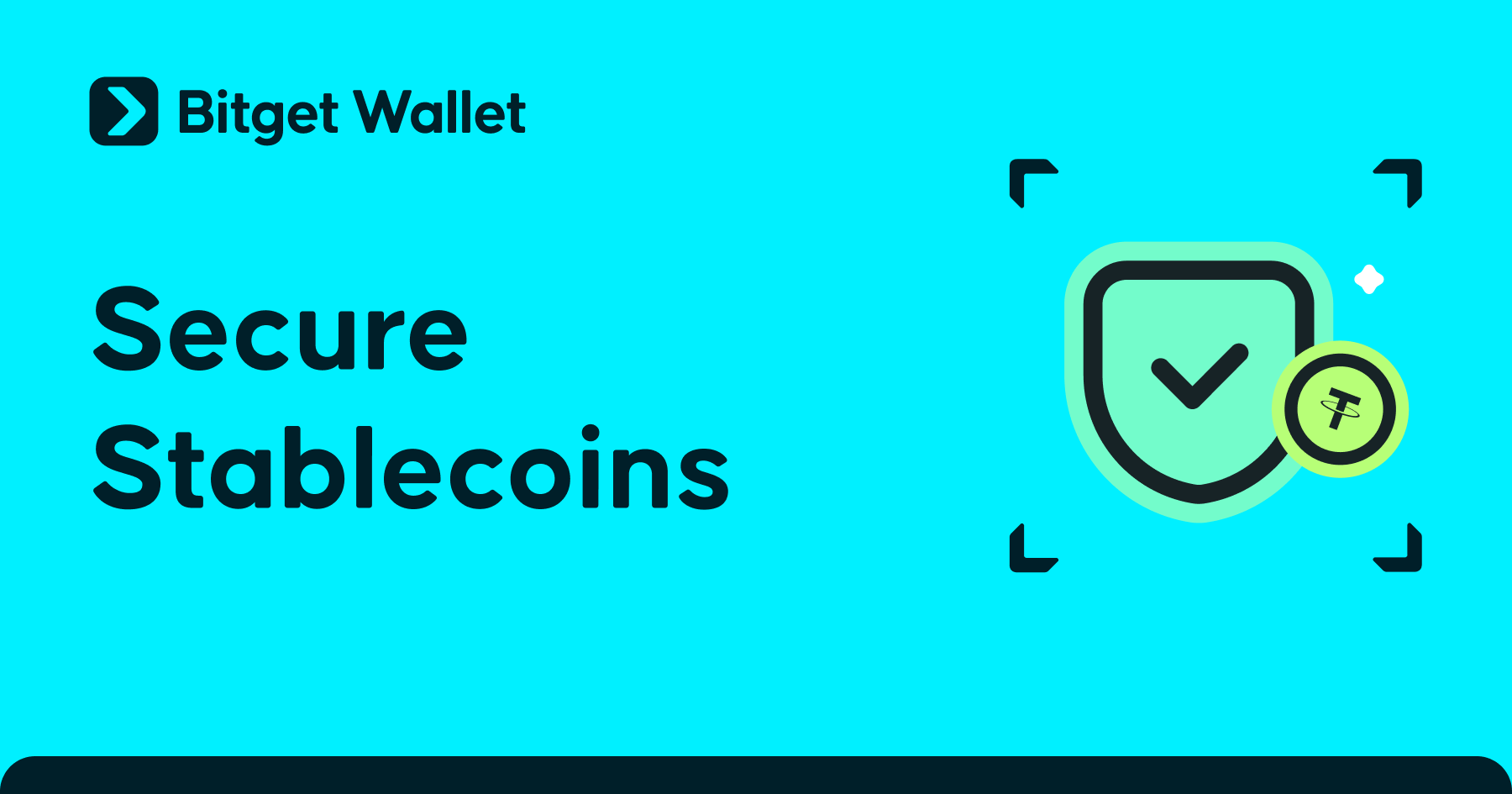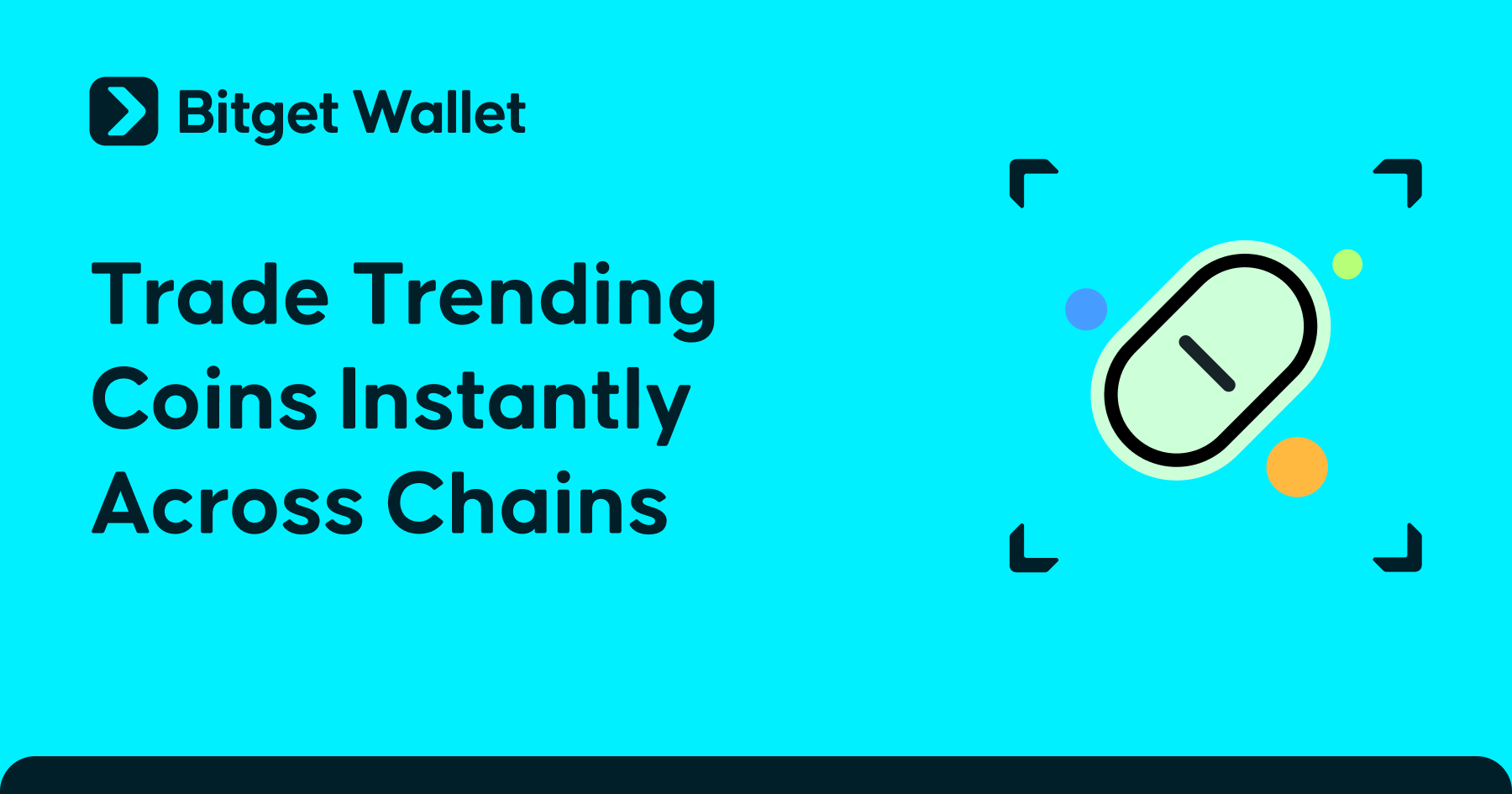MetaMask vs Bitget Wallet: Which Is Better in 2026?

Crypto wallets in 2026 are no longer just for storing tokens. They’ve become gateways to DeFi apps, NFT platforms, and blockchain ecosystems. As more users explore Web3 tools, choosing the right wallet affects everything—from how easily you can swap tokens to how securely you control your funds.
MetaMask and Bitget Wallet are two of the most recognized options today. MetaMask is best known for its strong integration with the Ethereum network. Bitget Wallet, on the other hand, is gaining recognition for its integrated features and support across more than 90 blockchain networks. This article examines how the two wallets differ in functionality, ease of use, and security—drawing from recent data, user insights, and design comparisons.
Key Takeaways
- Bitget Wallet is more versatile for daily users. It supports token swaps, NFTs, and multiple chains in one app, making it ideal for everyday crypto activity.
- MetaMask remains a developer favorite. It offers strong Ethereum integration and dev tool support but is less user-friendly for non-technical users.
- Bitget Wallet’s mobile-first approach appeals to new users. Its intuitive design and simplified setup attract beginners in fast-growing Web3 regions.
Feature Comparison: MetaMask vs Bitget Wallet
Understanding what each wallet offers helps determine the better fit. MetaMask caters to Ethereum users and builders. Bitget Wallet focuses on everyday users across chains.
Side-by-Side Wallet Features
| Feature | MetaMask | Bitget Wallet |
| Blockchain Support | Ethereum + EVM chains | 130+ incl. BTC, Solana, TON, Base |
| Token Swap | Yes, high fees (~0.875%) | Yes, incl. cross-chain swaps, low fees |
| NFT Support | View-only | Buy/sell via NFT marketplace |
| Portfolio Tracking | No | Yes |
| Developer Tools | Strong | Minimal |
| UI/UX | Extension-first, complex | App-first, beginner-friendly |
Summary: Bitget Wallet offers a full suite for traders and NFT users. MetaMask focuses on Ethereum tools and dApp connectivity.
How Bitget Wallet Handles Token Swaps
Token swapping is central to managing crypto assets efficiently. Bitget Wallet stands out for simplifying this process with advanced yet intuitive features.
Cross-Chain Swaps Without the Hassle
Bitget Wallet enables seamless swaps across multiple chains without needing native gas tokens. Whether you're converting ETH to BNB or USDT to MATIC, the swap tool handles it directly in-app.
Inside the Built-In Swap System
The app aggregates liquidity from top DEXs, offers limit orders, and includes slippage control. Users can complete both intrachain and cross-chain swaps using stablecoins for gas—a unique feature MetaMask doesn’t support.
Why It Stands Out vs MetaMask
While MetaMask limits swaps to Ethereum and has higher fees, Bitget Wallet makes cross-network trades affordable and user-friendly. Its one-click experience is ideal for mobile users and non-developers.
Summary: Bitget Wallet enables advanced, low-cost swaps with minimal effort—ideal for beginners and pros alike.
⮕ Read more: How to Swap Tokens on Bitget Wallet: A Beginner's Guide
Security Comparison: MetaMask and Bitget Wallet
Both MetaMask and Bitget Wallet are non-custodial, and all control over private keys lies with users. Although both websites ensure protection for users, they do it in different ways.
MetaMask Security
- Open-source and widely audited by the Ethereum developer community
- Uses a 12-word seed phrase for wallet recovery
- Compatible with hardware wallets like Ledger and Trezor
- Does not include built-in two-factor authentication (2FA)
- Lacks automatic phishing link detection—users must stay vigilant
Bitget Wallet Security
- Employs Double Encryption Storage Mechanism (DESM) for sensitive data
- Supports biometric login (e.g., fingerprint, facial recognition)
- Offers optional two-factor authentication (2FA) for added security
- Integrates phishing link detection for dApp connections
- Compatible with Ledger hardware wallets
Summary:
- MetaMask prioritizes transparency and flexibility, but requires users to manage most of their own security.
- Bitget Wallet emphasizes ease and safety with multiple built-in protections tailored for mainstream users.
Ease of Use for Beginners
For newcomers, usability can make or break the crypto experience. Here, the difference between MetaMask and Bitget Wallet becomes more obvious.
MetaMask User Experience
MetaMask’s power lies in flexibility, but setup requires manual network entry, understanding gas fees, and navigating browser extensions—which may confuse beginners.
Bitget Wallet User Experience
Bitget Wallet emphasizes plug-and-play simplicity. It detects chains, shows all assets in one dashboard, and allows in-app swaps and NFT trades without setup.
Summary: MetaMask suits experienced users. Bitget Wallet makes Web3 tools intuitive for casual and first-time users.
Ecosystem Support & Developer Tools
Each wallet aligns with a specific audience: MetaMask for builders, Bitget Wallet for Web3 consumers.
For Developers: MetaMask
MetaMask integrates seamlessly with Ethereum developer tools like Truffle and Hardhat. It's a staple for testing, deploying, and interacting with smart contracts.
For Users: Bitget Wallet
Bitget Wallet prioritizes accessibility. It offers token swaps, staking, and NFTs in-app, but lacks developer-facing integrations. It's not for building—it's for using.
Summary: MetaMask powers dApp creation. Bitget Wallet empowers day-to-day Web3 interaction.
Global Popularity and User Growth
Wallet adoption trends reveal how users interact with Web3 tools. Mobile-first wallets like Bitget dominate in emerging markets, while MetaMask remains popular in developer-heavy regions.
Bitget Wallet Growth
- Top Growth Regions: Particularly popular in Southeast Asia, Latin America, and Africa, where demand for mobile-first crypto tools continues to rise.
- Why Users Choose It: A mix of mobile-optimized UI, powerful cross-chain swaps/bridging, beginner-friendly experience, and strong support for local chains, local stablecoins, and emerging regional tokens.
MetaMask Community
- Dominance in developer circles and Ethereum ecosystem
- User base (21M monthly active users)
- Popular regions (North America, Europe)
- Strengths: browser extension, dev tools, legacy integration
- Slower mobile growth compared to Bitget
Sources: Cryptonews, Dailycoin, Consensys
Summary
- Bitget Wallet thrives in emerging, mobile-driven regions
- MetaMask maintains a stronghold in technical, Ethereum-first communities
User Reviews and Community Sentiment
Online reviews show how wallets perform in everyday use. Users weigh in on support, design, and functionality.
MetaMask Feedback
MetaMask is reliable but rated lower on G2 for ease of use and UI. Reddit users often cite high swap fees and complexity.
Bitget Wallet Feedback
Bitget Wallet receives praise on G2, Reddit, and Slashdot for its design, swaps, and NFT support. It's favored by non-technical users looking for speed and simplicity.
Summary: MetaMask is stable but aging. Bitget Wallet is praised for user-friendly design and innovation.
Which Wallet Should You Choose?
Selecting the optimal crypto wallet is determined by how you interact with the Web3 universe. Developers would prefer advanced features and adaptability, whereas common users prefer convenience and speed. Some of the key scenarios where both wallets shine are listed below:
Choose MetaMask If:
- You’re building or testing Ethereum-based dApps
- You use development tools like Truffle, Hardhat, or Remix
- You prefer a browser extension with customizable network settings
- You mainly interact with Ethereum and EVM-compatible platforms
Choose Bitget Wallet If:
- You want a mobile app that supports swaps, staking, and NFTs in one place
- You prefer automatic network detection without manual RPC setup
- You often trade across chains like BNB, Solana, or Polygon
- You’re new to crypto and want an intuitive, beginner-friendly wallet
Summary:
MetaMask is ideal for Ethereum developers and experienced users. Bitget Wallet is built for traders, NFT collectors, and anyone who values a seamless, all-in-one Web3 experience.
Conclusion
Modern crypto users demand more than simple asset storage. They seek a mobile-optimized solution that connects them to DeFi, NFTs, and cross-chain services. While MetaMask remains a strong option for Ethereum developers, Bitget Wallet better meets the practical needs of everyday users.
Bitget Wallet delivers a complete Web3 solution, combining smooth token swaps with broad blockchain compatibility. It simplifies user interaction, accelerates transaction times, and cuts costs—while also including essential security features.
Ready to upgrade your Web3 experience? Download Bitget Wallet and explore the crypto world with flexibility, simplicity, and security.
FAQs
1. Can I use both wallets?
Yes. Many users manage Ethereum-based tasks with MetaMask and use Bitget Wallet for everything else—especially cross-chain transactions and mobile features.
2. Is Bitget Wallet secure?
Yes. It uses biometric unlock, two-factor authentication, phishing detection, and DESM encryption. It also works with hardware wallets like Ledger.
3. Can Bitget Wallet swap tokens across chains?
Absolutely. Bitget supports gasless cross-chain swaps using aggregated DEX liquidity, even if you don’t hold the native gas token.
Risk Disclosure
Please be aware that cryptocurrency trading involves high market risk. Bitget Wallet is not responsible for any trading losses incurred. Always perform your own research and trade responsibly.
- What Is Crypto Fear and Greed Index: How Traders Read Fear vs Greed Signals2025-11-19 | 5 mins
- How to Pay with Crypto: Fast, Safe, and Beginner-Friendly Method2025-11-18 | 5 mins
- How to Convert Your Crypto to Cash: 5 Easy Ways for Beginners2025-11-18 | 5 mins

















